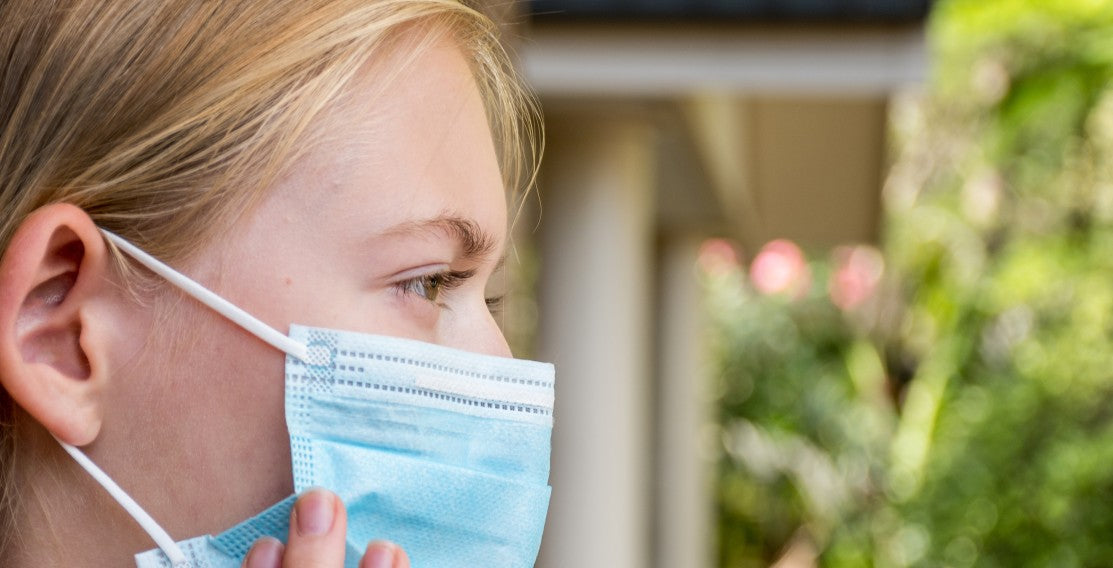Welcome to the Urban Survival edition of the team blog:
I’m sure you have had the opportunity to read an endless stack of articles about COVID-19, but I still hope we can reveal practical, applicable insight about staying healthy and protected that you haven’t yet encountered. We have found some useful advice from South Korea - who have, through testing and enforcement of precautionary measures, managed to flatten their curve to a great degree so far.

One of our buyers returned from Asia a month ago (during a vetted 3-layer face mask search for our staff & families), and the team all got together online to brainstorm this post. I hope that being able to provide an outlook on this virus that covers both East and West will be helpful.
How the virus spreads, information you can apply practically:
- COVID-19 is a variant of the SARS virus that was mostly concentrated in Asia from Nov 2002 - July 2003. It affects the lungs - people with weaker immune systems are more vulnerable - deaths have been concentrated around mostly the elderly above 50, although younger people with asthma, smokers, obesity sufferers, immunocompromised individuals, cancer patients, may be more vulnerable.
- Even if you don’t visibly have symptoms, you can spread the virus around. In fact, this is the vast majority of infected, and mostly why you should stay cautious and assume you might be contagious to others even if you don’t have any symptoms.
- Coughing / sneezing spreads the virus further through droplets. So too for anything that requires more breath: singing, shouting, yelling and so on. If you’re breathing out - be careful.
- The virus can survive on hard surfaces for up to 72 hours. However, we have only heard of a few recommendations to wash every single item in your grocery haul. That being said, perhaps you should toss the outer packaging (which might have been handled) where possible.
- It stays on softer (fabric / cardboard) surfaces for a lesser amount of time - more around 24 hours we’ve heard.
- Mask wearing has been strongly recommended - because of the way it spreads via mouth. However, you should still continue with Social Distancing.
How to stop it from spreading:
- Stay 6ft / 2m away from people so they can’t breathe their (potentially harmful) germs onto you. And so you can’t spread it onto them. This includes lines in grocery stores…
- Don’t mingle with people unless you can help it. The more people involved, the less safe you become. Try not to get stuck in an enclosed room where others are directly opposite you.
- Stay inside as much as you can - being with your family is fine - but don’t go and mingle with new groups. While tedious, this helps to protect our healthcare service staff and the vulnerable.
- If you are grocery shopping, try to order online. If that’s not possible, then try to go out for weekly shops only.
- The sun being out doesn’t change anything, try to continue to keep Socially Distancing as much as possible. There is no proof that hot weather slows the spread of the virus.
- Mask wearing has been made mandatory in many locations. While ordinary fabric masks are better than nothing - they are not very good protection - ideally you will want some kind of hydrophobic / water repellent material that acts as a shield or filter.

A collection of good advice that we have been following:
- Wash your hands with soap if you’ve touched any foreign surfaces, or if you’ve touched your face - soap forcefully breaks the outer surface of the virus, which is good. Hand sanitiser is an okay alternative if you don’t have soap. This might be a good time to use hand moisturiser as well.
- Wear a mask if you have to go out among people. It’s impractical to expect that you can socially distance forever, but when you do have to speak with others, keep a safe distance apart, and wear a purpose-made mask to protect yourself from possible viral-laden droplets.
- Sneeze or cough into your elbow. We know it might be unusual to some, but at least your hands aren’t also a viral vector now.
- You can still go out - for exercise, to stay fit, to stay mentally healthy as well as physically. Wear a mask, or avoid people (like the plague, literally).
We’ll get through this. It might be a year before a successful, safe vaccine is found - but there is lots we can do in the meantime.
The Second Wave (and third wave) of the virus:
Our team is expecting a second wave of the virus as quarantine is relaxed - similar to what Singapore, Japan, China and Korea have experienced.
Another of the models from Harvard predicts that we might have to socially distance until 2022.
Stay safe, stay healthy, stay protected and keep your mind and hands busy.
Chris Dangerfield
References:
https://www.gov.uk/guidance/coronavirus-covid-19-information-for-the-public
https://www.cdc.gov/coronavirus/2019-nCoV/lab/lab-biosafety-guidelines.html
https://www.who.int/news-room/q-a-detail/q-a-coronaviruses
https://www.ecdc.europa.eu/en/geographical-distribution-2019-ncov-cases
https://en.wikipedia.org/wiki/Coronavirus_disease_2019
Additional Media Sources:
Youtube - AsianBoss Video (Search for Korean Doctor)
Youtube - Kurtzgesagt video (Covid19)
